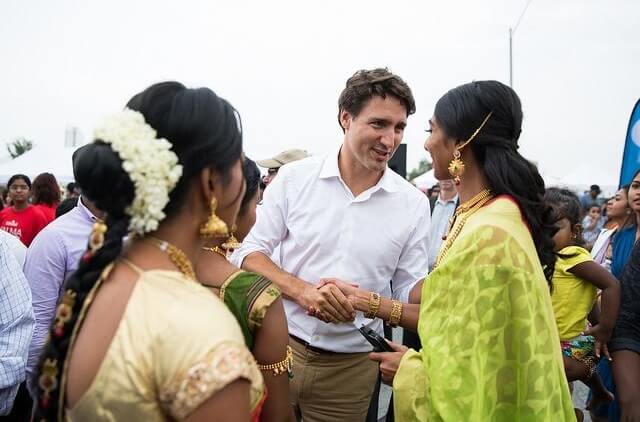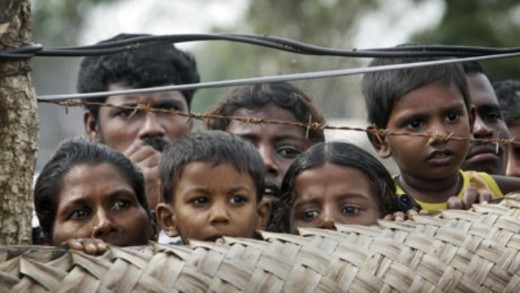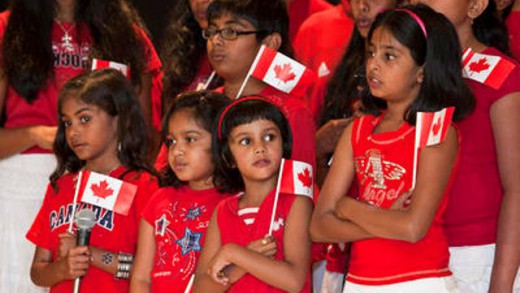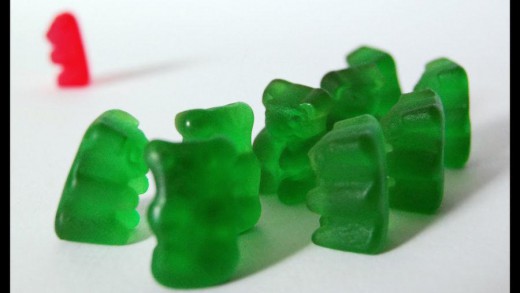I am a product of the diaspora. My heart, my flesh, my being is all part of a vast chain of quiet movements taken towards a new beginning.
Nimble feet that moved against the hard plains of airport security, words that were slurred with the harsh remarks of reality and of course, the cries of those left behind, described the Tamil diaspora that had nestled their way into the small nooks and crannies of this country — my country that I have grown up in so carefree, so blissfully ignorant to the pained aches that entrenched my parent’s hearts.
They were silent but more so frustrated. Hands that once trembled at the sound of racism slowly grew into clenched fists. They were quiet, they’re still quiet, but the hardened stares they gave, the huff of breath as they held in their cries, defined every struggle that clawed against their souls.
Discrimination became minuscule when they heard the begging of old friends, young children – kids that should have been my friends – echoed against the walls, the sound of the radio piercing the balloon that held everything in, that held all their anger in.
There was a war. There had always been a war, but the days towards the end were nearing. Anxiety ran high and everything – the sight of people shopping, food being thrown out without a second’s thought – became so surreal, a fantasy, an ugly utopia left to dry against the rays of my people’s suffering.
My parents were outside watching their fellow people move like a human chain, blocking roads, blocking highways, watching everyone crying out the same frustration they kept in as they scrubbed dishes and cleaned rooms.
My parents were reluctant to join the movement. They always were; if they weren’t, they wouldn’t have moved half way across the world to escape an otherwise blissful life.

But they were hurting. They were hurting because they were scared that they’d lose everything. They had already lost their self-respect, their wealth, their comfort – their only sense of hope that kept them alive was us, their children, and their real home: Sri Lanka.
They were scared that we wouldn’t be able to experience the same beauties they grew up with. They were scared that memories spent in their paradise would succumb to the harsh realities that mirrored the harsh winters they were living in. They were afraid for all the old friends they left, all the old neighbours, all the old relatives who, unlike them, were not afraid to stay.
When my parents were out there standing in union with the hundreds of Tamils who chanted the same rhythmic lines, they welled up with a sense of pride. What was lost in the depths of losing their identities had been regained in one swift movement.
For once, they were not afraid to say who they really are. For once, I heard them say the word “Tamil” with pride.
But just as swiftly their pride was resurrected, it was destroyed once again.
The war was over and there was a quiet linger of anger that followed them. But for the most part they were relieved. However, much like the thousands killed, their pride was murdered as well. They were forced to listen to the nation label their people as terrorists. They turned their heads away from these claims at first, but they soon began to accept it.
For the first time in my life, they told me to forget the word Tamil. They told me that if someone asked, I was not a Sri Lankan and I was definitely not a Tamil.
For a long time, I didn’t question it. I accepted it and when anyone asked, I simply smiled and shrugged it off. I learned to be embarrassed for being Tamil and I began to view my parents as lesser than others.
It was not until later that I naturally began to grow rebellious. When someone asked, I was a Tamil. At first, the word Tamil came out quiet and unsure, and the feeling of embarrassment was still present. They began to ask me what Tamil was and I would refer them to the actual country, Sri Lanka. I watched as they gave me a look of questioning, “What’s Sri Lanka?”
That was when I really began to view my family as a joke. No one knew what Sri Lanka was; when I pointed it out on a map, they gave me a weird look. I was labelled as exotic, a girl from a small island.
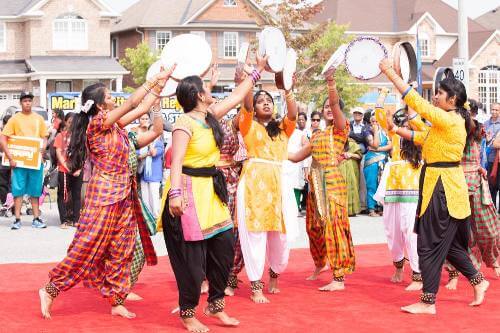
I was no longer a Canadian; my brown skin became a catalyst for subtle racism. At first I didn’t notice it, but then there were times when my jaw clenched and I was forced to brush it off for fear of coming off as too sensitive. Accents were thrown at me and soon “ignorance is bliss” slapped me hard across the face.
It was better afterwards. I realized that we were like a hive; there was us wherever we went. I met people like me at school. People knew who I was. People who knew the struggles, people who had lived the struggles. Of course, it all excited me – we belonged here. We had an identity.
But what makes an identity if you’ve never been nourished by the roots of your culture?
The war has never truly ended; there’s a war in all of our hearts. The sense of loss has never left my family; my dad still yearns to return home. My grandma still cries for her lost brother. My mother still struggles to say that she’s Tamil.
That’s the struggle of the diaspora.
That’s the reality of the diaspora.
And the dream of the diaspora is that we, the product of the diaspora, live to call this land our home. However, what they’ve failed to include is the culture, the historic movements of the diaspora. What they want is for us to escape the struggle of the diaspora. What they fail to recognize is that by doing so, we forget our cultural ties. We forget the struggles of our people. We forget how to advocate for what makes up our identity.
I am a product of diaspora. But I’m not willing to forget everything we’ve given up. Not yet.
Related articles:
Roots of Diaspora: Gowry, the Transnational Bride
Roots of Diaspora: Suthamie, the Refugee Mother
Tamil Journeys ’86: Marking the 30th Anniversary of a Historic Rescue at Sea

 Guest Contributor
Guest Contributor